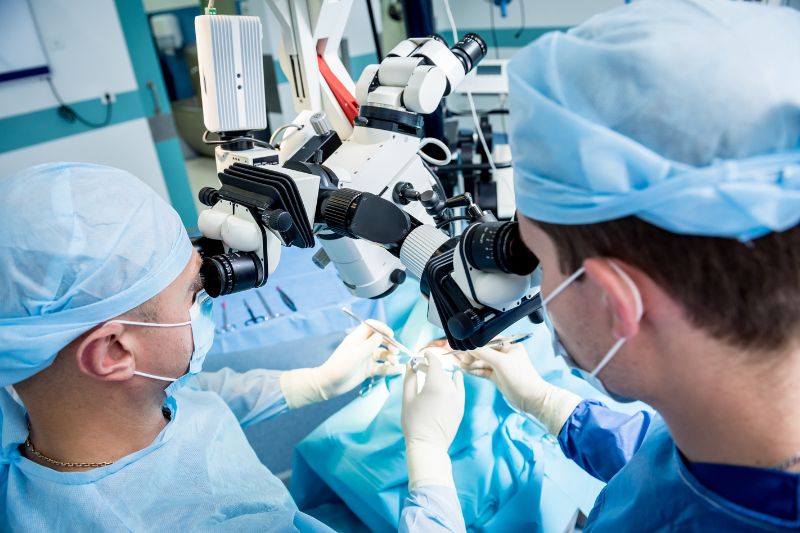
If you are looking for an x-ray center in Nagpur, you’re likely to find several options. X-ray centers play a critical role in diagnosing various medical conditions and assisting healthcare professionals in providing better patient care. In this blog post, we’ll discuss the importance of x-ray centers, what to expect during a visit and some essential information to consider when selecting an x-ray center in Nagpur.
X-ray Center in Nagpur: What Are X-rays?
Before exploring X-ray centers in Nagpur, it’s important to understand what X-rays are and how they work. X-rays are a type of electromagnetic radiation that can pass through the human body and produce images of internal structures. They are commonly used in medical imaging to diagnose issues with bones, joints, lungs, and other organs.
Table of Contents

X-ray Center in Nagpur: The Importance of X-ray Imaging
X-ray centers in Nagpur offer essential services in medical imaging. X-rays help in diagnosing a variety of conditions, including:
- Bone fractures: X-ray imaging is crucial for detecting and monitoring fractures and breaks in bones.
- Chest problems: X-rays can help identify issues such as pneumonia, lung cancer, and other respiratory problems.
- Dental issues: Dental X-rays are used to examine teeth and jawbones for cavities, abscesses, and other oral health issues.
- Digestive issues: Abdominal X-rays can reveal blockages or other problems in the digestive tract.
- Joint issues: X-ray imaging can help diagnose arthritis, joint inflammation, and other conditions affecting the joints.
X-ray Center in Nagpur: Types of X-rays
When visiting an x-ray center in Nagpur, you may encounter various types of x-ray imaging:
- Conventional X-rays: The most common type, conventional X-rays produce two-dimensional images of bones, joints, and other structures.
- Digital X-rays: These are similar to conventional X-rays but use digital technology to capture and display images.
- Computed Tomography (CT) Scans: CT scans use X-rays to produce detailed cross-sectional images of the body.
- Fluoroscopy: This technique uses X-rays to create real-time images, often during procedures such as angiograms.
X-ray Center in Nagpur: Preparing for an X-ray
When you visit an x-ray center in Nagpur, there are a few steps you may need to take to prepare for your imaging session:
- Dress appropriately: You may need to wear a hospital gown for the x-ray. Avoid wearing metal objects such as jewelry, as they can interfere with the image.
- Inform the technician: If you are pregnant or suspect you may be pregnant, inform the technician before the procedure. Special precautions may be necessary.
- Follow specific instructions: Depending on the type of x-ray, you may need to follow specific instructions, such as fasting before the procedure.

X-ray Center in Nagpur: What to Expect During an X-ray
During your visit to an X-ray center in Nagpur, here’s what you can expect:
- Check-in process: Upon arrival, you will need to check in and provide identification and any required paperwork.
- X-ray procedure: You will be taken to the x-ray room, where the technician will position you for the scan. The actual process is typically short and painless.
- Safety precautions: The technician will likely provide you with a lead apron to protect certain parts of your body from radiation.
- Image review: Once the x-ray is complete, the images will be reviewed by a radiologist or your referring physician, who will interpret the results.
X-ray Center in Nagpur: Choosing the Right Center
When selecting an X-ray center in Nagpur, keep these factors in mind:
- Reputation: Look for an x-ray center with a good reputation for quality imaging and reliable results.
- Accreditation: Check if the x-ray center is accredited by relevant medical boards or associations.
- Equipment and technology: Make sure the center uses modern and well-maintained equipment for imaging.
- Experienced staff: The center should have qualified and experienced radiologists and technicians.
- Location and convenience: Choose a center that is conveniently located for you and offers flexible appointment times.
X-ray Center in Nagpur: Radiation Safety
One of the main concerns when visiting an x-ray center in Nagpur is radiation exposure. However, modern X-ray centers take extensive precautions to minimize radiation exposure. Some key points to consider regarding radiation safety include:
- Minimal exposure: The amount of radiation exposure from medical X-rays is generally low and within safe limits.
- Protective measures: Lead aprons and other protective gear are used to shield certain body parts from unnecessary exposure.
- Monitoring: X-ray centers follow strict guidelines to ensure patient safety and minimize exposure.
X-ray Center in Nagpur: Availability of Services
When choosing an x-ray center in Nagpur, consider the range of services offered. Some centers may offer specialized imaging services such as CT scans or fluoroscopy in addition to standard X-rays. Additionally, some centers may provide same-day or next-day appointments, which can be beneficial if you need prompt imaging services.
X-ray Center in Nagpur: Post-Imaging Considerations
After your x-ray session at an x-ray center in Nagpur, your radiologist or physician will review the images and provide you with a diagnosis or further instructions. In most cases, you will not experience any side effects from the x-ray, but if you have any concerns, don’t hesitate to ask your healthcare provider.
What to Know About X-ray Imaging in Nagpur
When you or a loved one needs an X-ray, it’s helpful to understand what the process entails and what factors to consider when choosing a center for X-ray services. X-rays are a crucial part of modern healthcare, helping doctors diagnose a variety of conditions. Here is some information on what to expect and how to prepare for your imaging session in Nagpur.
The Role of X-rays in Healthcare
X-rays are a type of diagnostic imaging that allows doctors to view structures inside the body. They are often used to:
- Identify bone fractures: X-rays provide a clear view of bones and can reveal fractures and breaks.
- Examine the chest: X-rays can help diagnose lung issues such as pneumonia or lung cancer.
- Assist in dental care: Dental X-rays can reveal issues with teeth and jawbones.
- Assess digestive health: Abdominal X-rays can uncover problems in the digestive tract.
- Evaluate joint health: X-rays can help detect arthritis and other joint conditions.
Types of X-ray Imaging
When you go for an X-ray, you may encounter different types of imaging:
- Standard X-rays: The most common type, producing two-dimensional images of internal structures.
- Digital X-rays: A modern alternative that captures images digitally and provides clearer pictures.
- CT scans: A form of X-ray that creates detailed, cross-sectional images of the body.
- Fluoroscopy: Provides real-time images of internal organs, often used during medical procedures.
How to Prepare for an X-ray
When getting ready for an X-ray, here are a few tips to keep in mind:
- Dress properly: Wear comfortable clothing without metal fastenings or accessories.
- Inform the technician: If you are pregnant or might be, let the technician know before the imaging begins.
- Follow instructions: Depending on the type of X-ray, you may need to prepare differently, such as fasting before the procedure.
What Happens During an X-ray
Here’s a brief overview of the process:
- Check-in: Provide your identification and any required paperwork upon arrival.
- Procedure: You will be guided to the imaging room, where the technician will position you for the scan. The actual process is typically quick and painless.
- Protection: A lead apron may be given to shield parts of your body from radiation exposure.
- Reviewing the images: After the X-ray is completed, the images will be analyzed by a radiologist or your doctor.
Choosing the Right Imaging Center
When deciding where to get an X-ray, consider the following:
- Reputation: Look for a center with a good track record for accurate imaging and reliable results.
- Accreditation: Check if the center is accredited by appropriate medical bodies.
- Technology: Ensure the center uses modern, well-maintained imaging equipment.
- Qualified staff: Make sure the center has experienced radiologists and technicians.
- Location and hours: Choose a center that is conveniently located and offers flexible scheduling.
Radiation Safety Measures
Radiation exposure is a common concern for patients undergoing X-rays. Fortunately, modern X-ray procedures are designed to minimize this risk. Important points regarding safety include:
- Low exposure: The radiation levels from medical X-rays are generally within safe limits.
- Protection: Protective measures like lead aprons are used to shield specific areas of the body.
- Regulation: Imaging centers adhere to strict safety protocols to protect patients.

Variety of Services Offered
Some centers may offer a range of services beyond standard X-rays, such as CT scans or fluoroscopy. This variety can provide you with comprehensive diagnostic imaging, depending on your medical needs. Additionally, some centers may offer prompt scheduling for urgent situations.
After Your X-ray
Once your imaging session is complete, your physician will review the results and discuss any findings with you. If further tests or treatments are needed, they will guide you on the next steps. Most patients do not experience any side effects from an X-ray, but if you have concerns, be sure to speak with your healthcare provider.
Additional Considerations for X-ray Imaging
While X-rays are an invaluable tool in modern medicine, there are other factors to keep in mind:
- Pediatric Imaging: If your child requires an X-ray, centers may offer pediatric-specific services to ensure your child’s comfort.
- Follow-Up Appointments: Depending on your results, you may need follow-up imaging or additional tests.
- Availability of Reports: Ask how long it will take to receive your X-ray results and how they will be communicated to you.
The Importance of Clear Communication
When scheduling your X-ray and discussing your results, be sure to ask questions and communicate openly with your healthcare provider. Understanding your diagnosis and treatment plan is key to managing your health effectively.
Technological Advancements in X-ray Imaging
Advances in medical technology have significantly improved the capabilities of X-ray imaging. Digital X-rays are now commonly used, providing clearer and more detailed images compared to traditional film-based methods. The digital format also allows for easier storage, sharing, and retrieval of images, which can be particularly beneficial for tracking changes in a patient’s condition over time. Another advantage of digital X-rays is the reduced exposure to radiation, as the process is more efficient and requires lower doses.
Artificial Intelligence in X-ray Analysis
Another area where technology is making a difference in X-ray imaging is through the use of artificial intelligence (AI). AI algorithms can analyze X-ray images and assist radiologists in detecting abnormalities, such as tumors or fractures, with higher accuracy and speed. This technology has the potential to improve diagnostic outcomes and provide more precise treatment plans for patients. While AI does not replace the expertise of human radiologists, it can serve as a valuable tool in supporting their work.
Remote Access and Telehealth Applications
The integration of X-ray imaging with telehealth services is becoming increasingly common. Patients can have their X-rays taken at one location, and the images can be remotely reviewed by specialists in another location. This is particularly useful for patients in rural or underserved areas who may not have access to specialists locally. Remote access to X-ray images can also speed up diagnosis and treatment plans, as doctors can review the images and provide feedback quickly.
3D Imaging and Cross-Sectional Views
CT scans, which use X-rays to produce three-dimensional images of internal structures, offer a more detailed view than standard X-rays. These scans are useful for examining soft tissues, blood vessels, and organs. The ability to view cross-sectional images allows doctors to assess a patient’s condition more thoroughly and develop more targeted treatment plans. CT scans are especially beneficial for diagnosing complex conditions, such as cancers or vascular issues.
Personalized Imaging Plans
As medicine moves towards personalized healthcare, X-ray imaging is following suit. Imaging centers can tailor imaging plans to suit individual patient needs, taking into account factors such as age, medical history, and specific areas of concern. This personalized approach can lead to more accurate diagnoses and better outcomes. For example, a patient with a history of joint issues may benefit from a customized imaging plan that focuses on the affected areas.
Safety and Comfort for Patients
Medical centers continue to prioritize patient safety and comfort during X-ray imaging. Newer machines are designed to minimize discomfort and exposure to radiation. Technicians receive specialized training in patient care, ensuring that individuals undergoing X-rays feel comfortable and informed throughout the process. Safety measures such as protective gear and efficient imaging techniques help minimize risks associated with radiation.

The Future of X-ray Imaging
The future of X-ray imaging holds exciting possibilities, with ongoing research and development aiming to further enhance the technology. Innovations such as portable X-ray machines and real-time imaging for surgical procedures could revolutionize the way healthcare professionals use X-ray technology. As these advancements continue to emerge, the field of medical imaging is set to play an increasingly pivotal role in the diagnosis and treatment of a wide range of conditions.
X-ray Center in Nagpur: Conclusion
In summary, an x-ray center in Nagpur plays a vital role in providing diagnostic imaging services to patients. With a variety of options available, it’s important to consider factors such as reputation, accreditation, and convenience when selecting the right center for your needs. By understanding what to expect during a visit and how to prepare, you can make the most of your experience at an X-ray center in Nagpur. Remember, if you have any concerns about your imaging procedure or results, always discuss them with your healthcare provider.



